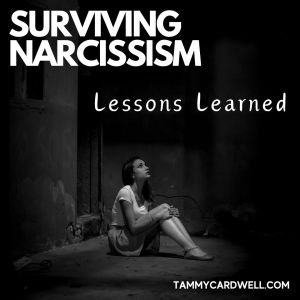I apologize.
This has been sitting in my drafts since we were working on the site move.
I greatly regret the delay!
Although the red flags, which had begun waving before our marriage, started becoming more obvious when we moved in with his parents after six months of marriage, things didn’t blow up for me until he had his first affair (that I knew of) some years later. The experience crushed me.
And that, being crushed, drove me deep into God’s arms.
It’s sad that it so often takes truly horrific experiences to send us to the one place we most need to be! As a pretty typical American Christian, I thought I was doing well. I attended church regularly, served, tithed, read my Bible (some), prayed (fairly often)… All of that was good, and it was a start, but we were created for exactly what Adam had in the garden – an intimate relationship with God, one where we spend regular, quality time with Him as our sole focus.
I had young children, so I was able to keep myself distracted from what my husband was doing during the day, but once the boys went to bed and he was with the other woman, ignoring my repeated calls (which he’d explain away as bad cell signal the next day), it was just me and a waiting God.
I don’t remember how long it took me to wake up and turn completely to Him, but at some point I did. I changed my own actions, choosing to spend those endless hours in prayer, worship, and His Word.
Psalm 91 is fantastic, containing powerful instructions and promises that I and many others pray and declare regularly. It was in this season that I learned the reality of verses 1 and 2.
He who dwells in the secret place of the Most High
Shall abide under the shadow of the Almighty.
I will say of the LORD, “He is my refuge and my fortress;
My God, in Him I will trust.”
Psalm 91:1-2 (NKJV)
In turning my focus entirely on God during those long nights, I opened a door to a whole new relationship with Him. In getting to know Him better and better, developing a truly intimate relationship and learning to more clearly hear and understand His voice, I came to that precious place.
In the midst of the worst days of my life to that point, I was living in God’s secret place, hidden under the shadow of His wings. I had run to Him as my refuge, found myself safe in the fortress that was my God, and I was confident that if everyone else failed me I would always be able to trust Him.
I kept prayer journals at the time and I clearly remember telling Him in both prayer and my prayer journal that I didn’t want to lose what I had found in Him, what we had developed in the middle of the fire I was walking through. I straight up said that, while I wanted out of the fire, I was afraid that I would lose my focus when I left, that I would lose that closeness that was so radically changing me.
In point of fact, I had a group of online friends who knew what was going on and were genuinely worried about me. I emailed them at one point, and shared what would later become a blog post entitled “The View from Inside the Furnace.” I had discovered I had much in common with Shadrach, Meshac, and Abednego who, while they obviously hadn’t wanted to be thrown into the fire, abruptly found themselves having private time with Jesus.
Like me, they suddenly were in no hurry to leave. Like me, they probably learned things in that time that changed their lives forever. Like me, they were perfectly safe while in the very midst of the flames. They didn’t leave the furnace until they were commanded to.
Like them, I walked out of that particular fire changed forever, freer than I had been when I was thrown in, and not smelling of smoke.
Admittedly, in years since this hellish season, I’ve had times of being more intentional and less intentional where my relationship with God is concerned, but I have never let myself walk away from my Refuge. It has always been God who has brought me through, and to this day I am grateful that I was driven so deeply into His arms during that time.
Understand that I could just as easily have run in a different direction. I could have stayed buried in the books I loved to read. I could have turned to drink or drugs as so many do. I could have let the fear and pain eat away at me until I landed in a hospital’s psychiatric ward. I didn’t.
I didn’t because I chose
to make God my refuge.
God is not only the only refuge you need, He is the only real refuge. We can try to do it on our own, but we aren’t meant to carry those kinds of burdens. His plan has always been for us to run to Him.
Make God your Refuge.
Celebrating Jesus!
Tammy C



